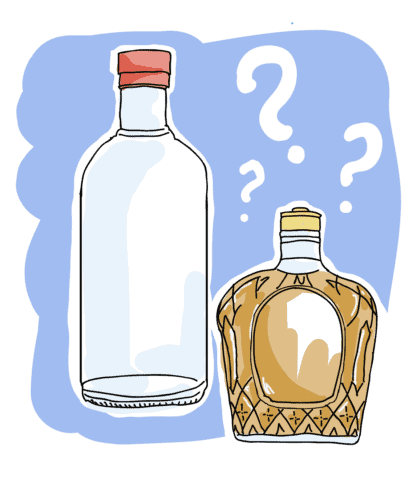The Saskatchewan Party has checked off another box on their long list of privatization schemes. With a looming $1 billion deficit projected for next year, perhaps selling yet another one of the province’s most lucrative assets is not the best idea.
The government claims that privatizing liquor stores will not negatively affect the revenues of the Saskatchewan Liquor and Gaming Authority because private stores will remain an expendable extension of SLGA operations. If liquor sales remain the same as they are now, they posit that none of the revenue that pays for Saskatchewan’s hospitals, schools and roads will be lost.
This is a naive way of thinking. There seems to be a failure to completely understand the complexities of the liquor retail system in this province. By contending their claim on sales revenue alone, the government fails to recognize the variability of fluctuating wholesale costs and government-controlled markup as a result of a  decentralized liquor market, which has a dramatic impact on government revenue.
decentralized liquor market, which has a dramatic impact on government revenue.
Private retailers require rates of return on their capital costs that greatly exceed those of a liquor board. With a proposed cut of 25 per cent to markups, the government will be losing much of its valuable tax return, which helps balance the physical and social costs of consuming alcohol.
In addition, the implementation of private liquor stores creates a more complicated and costly distribution system. The SLGA will lose its purchasing power as more competitors are brought into the game, which will in turn cost the province its ability to use that purchasing power to negotiate better deals.
As a result, it is undeniable that a singular, centralized public liquor entity is better able to control the wholesale costs and markup fluctuations, which stabilizes the government return. The removal of a central actor compromises the fluidity and profitability of the entire system.
According to the Canadian Centre for Policy Alternatives, if the provincial government’s proposals had been implemented five years ago, the total $1.1 billion revenue of public liquor sales of the last five years would have experienced a $100 million hit.
Stating that if liquor sales remain the same, the province’s revenues will remain the same is contradictory to privatization history. In Alberta and British Columbia, the gross profit margins dramatically decreased as privately operated liquor stores increased.
In a country with universal healthcare, it’s only rational that due to the detrimental health implications associated with alcohol consumption, provinces should receive tax dollars on the sale of liquor to help balance the inevitable healthcare costs that come as a result of drinking proclivities.
Being a student, there is certainly an attachment to alcohol, especially in this province. Many see privatization as a means to cheaper beer, and a more consumer-friendly market environment.
While many contend that private stores result in lower liquor prices, I am still not fully convinced of this. Alberta beer prices have climbed to the highest in Canada, despite complete privatization of the industry.
Even prior to the economic collapse, prices were comparable within a couple dollars of Saskatchewan’s beer prices. Regardless, even if privatization does save consumers a couple of bucks, the lost government revenue is simply not worth it.
The SLGA has done a great job of finding a way to balance the social costs and health impacts of alcohol consumption with reasonable prices that do not take away an individual’s personal liberty to purchase and consume alcohol. It’s the perfect middle ground that fosters social responsibility while improving the state of the province.
The privatization schemes of the current government are knee-jerk reactions to the dangerous deficit the province is faced with. At the end of the day, the cuts to liquor markups and the inevitable increase of the liquor wholesale price will have a negative impact on the province’s funding.
Saskatchewan’s crown corporations are the backbone of the provincial economy and the sale of yet another one of our public goods will only hurt the province. Our liquor stores alone have returned $1.1 billion in revenue over the last five years, and the loss of that income will seriously hurt our education, our hospitals and the people of Saskatchewan.
—
Travis Hebert
Graphic: Lesia Karalash / Graphics Editor
Leave a Reply